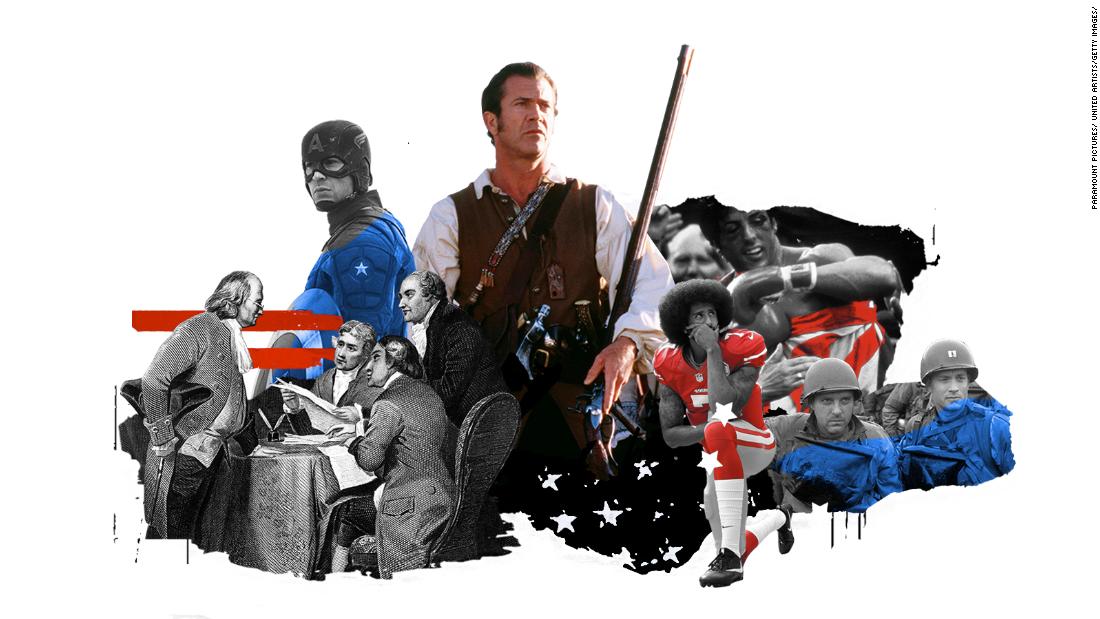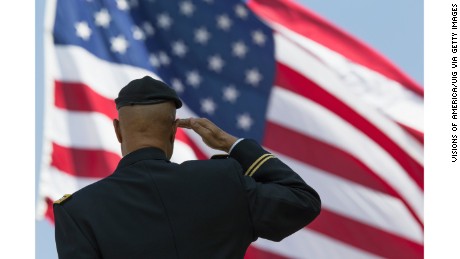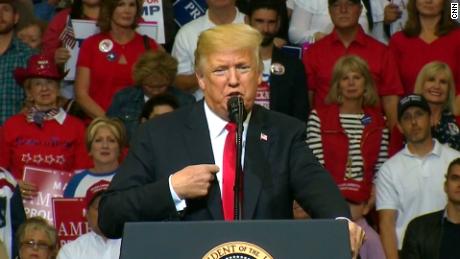What does it mean to be a patriot? Experts say it’s not easy to define
It’s a word that’s supposed to bring unification and joy, but throughout history, it’s also divided and excluded people.
So what makes “patriots” such a unifying, yet divisive word at the same time? Here’s a look at the history of it and its context.
Patriot is derived from a French word
Like most words, patriot does not have English origins.
It’s derived from the Greek word “patrios,” which means “of one’s father.” Patriot entered the English lexicon through the French word “patriote,” meaning “fellow countryman” or “compatriot,” according to Merriam-Webster.
There’s never been any arguments about patriot’s literal definition, but it’s context — usually political — is what has changed over time, according to Kristen Syrett, associate professor of linguistics at Rutgers University/New Brunswick.
During the 17th century, a patriot in Europe was someone who loved their country and agreed with the established government and/or religion, Merriam Webster’s essay on the word states.
The word then changed in meaning and connotation as infighting in Europe led to the formation of new nations, like America.
“This word had kind of switched from a supporter of established government to someone who is against an established government,” said Peter Sokolowski, editor-at-large for Merriam-Webster.
During the American Revolution, patriot had a positive connotation in America, but a negative one in England, Sokolowski said. It’s because of this that the founding fathers are seen as the epitome of patriotism.
“It kind of made them religious figures,” Sokolowski said.
The unabridged definition of patriot in Merriam-Webster’s dictionary also says it is someone who is a member of a resistance group. That definition has not been updated in at least 30 years, Sokolowski said.
In the Oxford English Dictionary, one of the oldest in the world, an entry of patriot was revised in 2005 to say:
“An opponent of presumed intervention by federal government in the affairs of individuals, esp. with respect to gun and tax laws. Frequently in the names of right-wing libertarian political and militia groups.”
A spokesperson for Oxford’s Languages team told CNN in an email the definition was part of a regular series of updates in 2005.
“The definition in question is part of wide range of nuanced uses of the word ‘patriot’ recorded in the (Oxford English Dictionary) and changes were made based on evidence of how the word is used in day-to-day life,” the statement read.
The addition of right-wing groups “traces the direction the language is going,” Sokolowski said.
Hate groups use ‘patriot’ for propaganda
Patriot in nativist, nationalistic and hate speech goes back to at least the mid-1800s to the Know Nothing Party, according to Sam Jackson, an assistant professor at the University at Albany who studies patriotism and violence in far-right groups.
“That movement was organized around perception that external influences — like non-White Europeans and others — were a threat to American values,” Jackson said. “By the 1850s, we’re seeing language of patriotism and symbols being used in political ways and to mark people as ‘one of us and one of them.'”
The “us vs. them” attitude of patriotism would continue into the new century and morph into an idea that patriotism is American and anything not American is bad.
“If I say someone is a true patriot, I have a clear idea of what that means and what it means to not be a patriot,” said Syrett, the Rutgers professor. “This is a word that is really conditioned by what our set of values is and what we think we’re fighting for.”
The values of being a patriot for those who had nativist and nationalist ideologies meant that America came first and foremost. Anyone against that particular set of values was seen as a threat, even if that threat was the US government.
“The word patriot is frequently exploited by people that want to take advantage of this idea of a love for country,” said Hayden, the SPLC senior investigative reporter. “There is nothing wrong with wanting to do good for your country, but when that passion is corrupted … that is taking good intentions and corrupting them for the purpose of doing harm.”
Former President Donald Trump and his daughter Ivanka have also used the word when referring to supporters.
According to Jackson, the University at Albany professor, “When you say someone is a patriot, you’re saying there’s some goodness in them. It validates them.”
Pop culture uses patriot to illustrate America
In pop culture, patriot can bring forth many images.
Being a patriot is “a word that addresses identity,” Sokolowski, of Merriam-Webster, said.
“Identity is an enormously personal and political part of language,” he said. “When it comes to identity, you’re getting to something that touches people deeply.”
Syrett said these movies and TV shows depicting patriotism are a reflection of the times and show there is an audience for such content.
“Pop culture not only encourages a change in word meaning but it also capitalizes on a sentiment that is there on the broader public,” she said.
But there are also pop culture disagreements around what constitutes a patriot.
In the same vein, Syrett and Sokolowski said there are some who would say the rioters at the US Capitol were patriots, while others may have seen them as terrorists.
Syrett said the discrepancy over who or what is a patriot is a battle of linguistics that has been fought since the country’s founding — when it wasn’t even agreed upon on what it meant to be American.
![]()










